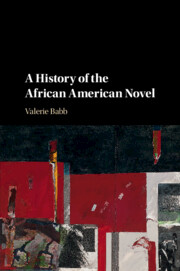Summary
“The colored writer generally speaking, has not yet passed the point of thinking of himself first as a Negro, burdened with the responsibility of defending and uplifting the race,” wrote Charles Chesnutt in his response to “The Negro in Art: How Shall He Be Portrayed?” (The Crisis Symposium 1926). He continued, “Such a frame of mind, however praiseworthy from a moral standpoint, is bad for art. Tell your story, and if it is on a vital subject, well told, with an outcome that commends itself to right-thinking people, it will, if interesting, be an effective brief for whatever cause it incidentally may postulate” (McElrath, Essays 492–493). Chesnutt's words signify the weight representation places on black novelists. Though his statements were made almost one hundred years ago, their import casts a long shadow.
Nineteenth-century novels of necessity in de facto fashion were charged with proving black humanity and intellect. Authors were evaluated in terms of their biology, and their books seen as evidence, testimony, but rarely art. Novels of the late 1910s and into the 1920s chipped away at these perceptions and created new fictional space for investigating what was oversimplified as black identity. The efforts of novelists were still constricted by the imposition of a persistent binary between aesthetics and activism, a binary affecting not only the perception of novels, but also the process of their creation. Many writers felt pressure to align themselves along this binary, or explain why they chose to ignore it. The privileging of art over politics was used to devalue novels that chose to engage in social dialogue, and frequently ignored the fact that embracing advocacy need not mean eschewing craft. From the opposite vantage point, not embracing politics was read as an act of racial disloyalty, and writers with race-ambivalent novels resisting easy categorization frequently found their works marginalized. Throughout their history, African American novels evidenced a quest for freedom on many levels: personal, racial, artistic. But the idea that the African American novel represents or advocates for a community persists and now is more fraught than ever.
- Type
- Chapter
- Information
- A History of the African American Novel , pp. 345 - 346Publisher: Cambridge University PressPrint publication year: 2017



